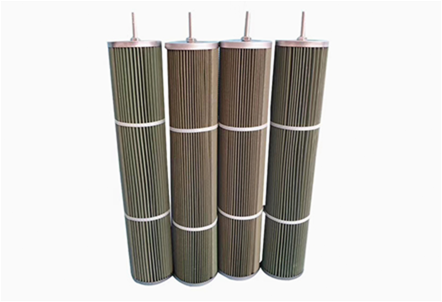 Tel:
+8615930870079
Tel:
+8615930870079
ديسمبر . 14, 2024 19:42 Back to list
hepa cartridges
Understanding HEPA Cartridges Importance and Applications
In today's world, where air quality plays a crucial role in health and well-being, HEPA (High-Efficiency Particulate Air) cartridges have become essential components in various air filtration systems. These cartridges are designed to trap a significant amount of particles and pollutants, making them vital in various settings, including homes, offices, hospitals, and industrial environments. This article delves into the significance of HEPA cartridges, their functionality, and the diverse applications they serve.
What is a HEPA Cartridge?
HEPA cartridges are filtration systems that meet specific standards set by the U.S. Department of Energy (DOE). To be classified as HEPA, a filter must capture at least 99.97% of particles that are 0.3 microns in diameter. This includes dust, pollen, pet dander, mold spores, and even some bacteria and viruses. The construction of a HEPA cartridge typically includes a dense mat of fibrous materials, which effectively traps airborne particles.
How Do HEPA Cartridges Work?
The effectiveness of HEPA cartridges lies in their design. The fibers in the cartridge are strategically arranged to create a labyrinth-like structure that captures particles through various mechanisms, including inertial impaction, interception, and diffusion. As air passes through the filter, larger particles are captured primarily through inertial impaction, while smaller particles might collide with fibers due to random Brownian motion. This complex interaction ensures that a significant amount of contaminants is removed from the air, resulting in cleaner and safer breathing environments.
Importance of HEPA Cartridges
1. Health Benefits One of the most significant advantages of using HEPA filters is the health benefits they offer. By removing allergens, dust, and other harmful particulates from the air, HEPA cartridges can help reduce asthma and allergy symptoms, making them particularly valuable for individuals with respiratory conditions.
2. Enhanced Air Quality The use of HEPA cartridges in air purifiers and HVAC systems dramatically improves indoor air quality. This is critical in settings like hospitals, where maintaining sterile environments is essential, and in homes where pollutants from cooking, cleaning, and outdoor sources can accumulate.
hepa cartridges

3. Energy Efficiency Modern HEPA filters are designed to balance airflow resistance and filtration efficiency. This means that while they effectively capture pollutants, they also allow for optimal airflow, ensuring that heating and cooling systems operate efficiently without excessive strain, ultimately saving energy.
4. Versatility HEPA cartridges are versatile and can be used in various applications. Beyond residential air purifiers, they are widely utilized in commercial settings such as offices, schools, and manufacturing plants. In healthcare, HEPA filters are crucial in operating rooms and isolation rooms to prevent airborne infections.
Applications of HEPA Cartridges
- Residential Use Home air purifiers with HEPA cartridges help families combat allergens and pollutants, promoting better health and comfort within living spaces.
- Medical Facilities In hospitals and clinics, HEPA filters are instrumental in controlling infection, ensuring that environments remain safe for vulnerable patients.
- Industrial Settings Factories and laboratories that deal with hazardous materials often require HEPA filtration systems to prevent the release of toxic particles into the air.
- Transportation HEPA filters are increasingly being used in public transportation systems, such as buses and trains, to enhance passenger safety by maintaining cleaner air.
Conclusion
HEPA cartridges play a crucial role in maintaining air quality and ensuring public health across various environments. Their ability to efficiently filter out harmful particles makes them indispensable in modern air purification solutions. As awareness of air quality issues grows, the demand for HEPA filtration systems is likely to increase, leading to further innovations in filtration technology. Ensuring that we have clean air to breathe is not just a luxury but a fundamental necessity for promoting overall health and well-being.
-
Nano Fiber Technology: Revolutionizing Cartridge Dust Collector FiltersNewsAug.06,2025
-
How Activated Carbon Air Cartridges Eliminate OdorsNewsAug.06,2025
-
Dust Filter Cartridge Handling Fine Particulate MatterNewsAug.06,2025
-
Cartridge Dust Collector Filter for Welding Fume ExtractionNewsAug.06,2025
-
Activated Carbon Filter Cartridge Effectiveness Against VOCsNewsAug.06,2025
-
Activated Carbon Air Filter Cartridge Benefits ExplainedNewsAug.06,2025

 Email:
Email:





